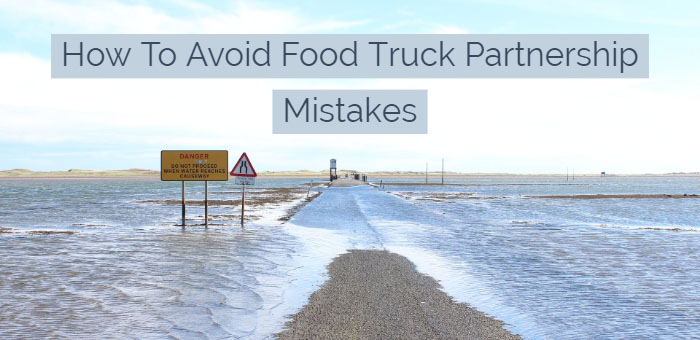The right food truck partnership can be both satisfying and profitable. But like any relationship, working with a business partner successfully over the long term means going in prepared with the proper groundwork in place. Here are some common food truck partnership mistakes to avoid.
How To Avoid Food Truck Partnership Mistakes
For a food truck business that is formed as a partnership learning how to nurture these business relationships is critical to the businesses growth. You need to avoid partnership mistakes, Commit to these relationships so doubt doesn’t creep in. Make sure everyone is clear on timelines, expectations, deliverables, communication preferences, collaboration methods and other issues before you even move forward.
Don’t over promise and under-deliver; that can be a sure way to undermine a partnership. Show attention to detail, even down to spell-checking documents. You want your food truck organization to build a good reputation, so demonstrate your professionalism in all aspects of the partnership.
These relationships depend on trust and commitment, so there’s no place for apathy. Watch out for self-delusion and keep your eyes open; it’s easy to pretend everything’s going well when it’s not. Be up front about everything, even problems and mistakes. Integrity and honest communication will go a long way toward helping your alliances work.
RELATED: Fly Solo Or Run As A Food Truck Partnership?
The Bottom Line
Working with a partner inevitably increases the risk of conflict. Protect yourself, and your investment by avoiding partnership mistakes. Avoid entering into any partnership without a legal contract. And don’t forget to seek professional advice where non disclosures, non competes, and power of attorney agreements are concerned.
Do you have any additional partnership mistakes we missed? Share your thoughts on this topic in the comment section, our food truck forum or social media. Facebook | Twitter
Disclaimer: This article is intended to be a general resource only and is not intended to be nor does it constitute legal advice.




